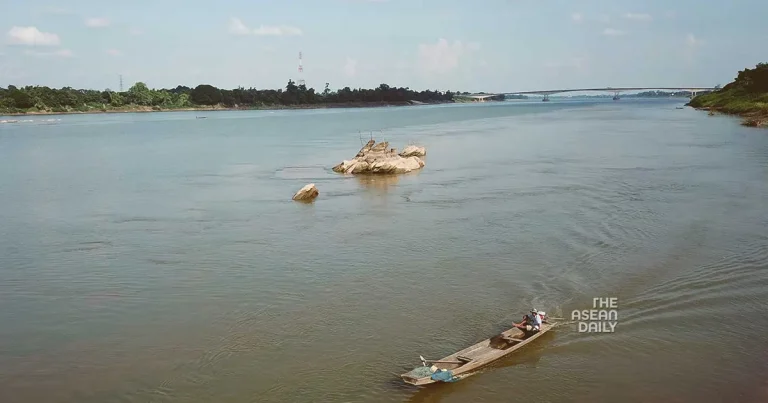4-3-2024 (BANGKOK) Unsustainable development is jeopardizing the health and biodiversity of fish populations in the Mekong River, with a report from conservation groups revealing that one-fifth of fish species in Southeast Asia’s primary watercourse are on the brink of extinction. The Mekong River, spanning nearly 5,000km from the Tibetan Plateau to the South China Sea, serves as a vital source of livelihood for millions of people in China, Laos, Myanmar, Thailand, Cambodia, and Vietnam.
The threats faced by the Mekong’s fish include habitat loss, the conversion of wetlands for agriculture and aquaculture, unsustainable sand mining, the introduction of invasive species, worsening climate change, and the construction of hydropower dams that fragment the river’s flow and its tributaries. The report, compiled by the World Wildlife Fund and 25 global marine and wildlife conservation groups, identifies hydropower development as the most significant current threat, potentially gaining momentum.
Zeb Hogan, a fish biologist leading the Wonders of the Mekong group, highlighted the impact of dams on altering the river’s flow, changing water quality, and obstructing fish migration. A surge in Chinese-built hydroelectric dams upstream has hindered essential sediment flow to farms in the Mekong River Delta, as reported by Reuters in 2022.
The report, titled “The Mekong’s Forgotten Fishes,” states that around 19% of the Mekong’s 1,148 fish species are on a trajectory towards extinction. The actual figure might be higher, given the limited knowledge about 38% of the species, making it challenging to assess their conservation status accurately. Among those facing extinction are 18 species classified as critically endangered by the International Union for Conservation of Nature, including two of the world’s largest catfish, the world’s largest carp, and the giant freshwater stingray.
Zeb Hogan emphasized the significance of the Mekong River, highlighting that it hosts some of the largest and rarest fish globally. The depletion of fish in the Mekong, responsible for over 15% of the world’s inland catch and generating over US$11 billion annually, could threaten food security for at least 40 million people in the Lower Mekong basin.
Despite the challenges, Hogan expressed optimism, stating that it’s “not too late” for the countries in the delta to coordinate efforts and reverse the adverse impacts on the fish population. He urged collective action to ensure sustainable development and preserve the future of the Mekong River.




